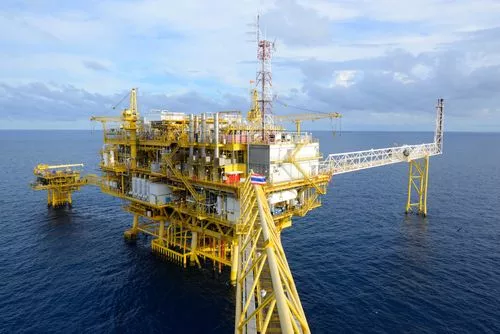What’s Changing and What Does It Mean for Offshore Workers?
Union Oil Company. The Exxon Valdez. BP’s Deepwater Horizon. All of these names have one thing in common: they’re companies primarily responsible for three of the largest oil spills in the U.S. the last 50 years. Each of these disasters resulted in the spilling of millions of gallons of oil into the water, killing thousands of animals, destroying beaches, and affecting the lives of those living along the shore. To individuals who work offshore on drilling rigs or platforms, an offshore disaster can be a matter of life or death.
Needless to say, offshore disasters like these are usually met with public outrage and lots of questions about how to prevent future drilling accidents or offshore explosions. This is often where government agencies like the Bureau of Safety and Environmental Enforcement (“BSEE”) come in, introducing new regulations that oil and gas companies must follow in an effort to prevent the blowouts that result in oil spills and other offshore accidents that could harm or injure offshore workers. Of course, new federal regulations are often met with opposition, as some argue that adding more safety measures is an unfair government overstep.
What’s Changing and Why?
After the Deepwater Horizon blowout and resulting disastrous spill from the Macondo well in 2010, a number of environmental and safety regulations were implemented in an effort to reduce the risk of future blowouts and drilling rig accidents. In late 2017, Trump administration regulators proposed a number of rollbacks to these proposed safety rules in an effort to reduce the role of government in the offshore oil and gas industry and to free companies from regulations that some considered an unnecessary burden.
Proponents of the changes argue that rolling back certain measures will save the oil industry over $900 million in the next decade, as well as generally loosen what they consider unfair business restrictions. Others disagree, however, arguing that the regulations were necessary to reduce the risk of serious environmental damage and improve the overall safety of oil rigs and drilling operations.
Under the proposed rollbacks, the following measures will be removed or cut back:
- Third-party equipment inspections of blowout preventers (“BOPs”) will no longer be required by the Bureau of Safety and Environmental Enforcement. This is a key change, as this measure was initially required because of the failure of the BOP on the Deepwater Horizon involved in the BP Oil Spill. The proposed regulation that was rolled back arose based on an identified gap in the regulatory scheme applicable to drilling rigs operating on the Outer Continental Shelf. While the Deepwater Horizon investigations revealed sufficient regulatory oversight as to the marine aspects of the drilling rig vessels, a blind spot was identified due to the fact that the oil and gas-related drilling equipment did not receive the same level of scrutiny despite the critical nature of that equipment to the health and safety of the crews operating the rigs. Thus, the lessons arising from the Deepwater Horizon led to the proposed regulatory change that required certified third-party inspectors to verify the mechanical integrity of BOP equipment operating offshore. Rolling back this regulation could endanger those who work aboard drilling rigs where the identified regulatory gap will now remain.
- Companies will see looser requirements regarding the real-time streaming of production data to onshore operations where they could be viewed by regulators. The requirement for more real-time live streaming of drilling data was implemented in 2010 so that oil and gas companies could monitor drilling operations at their facilities onshore where the company engineers are more often located. Additionally, federal regulators could keep an eye on drilling activity as it was happening, anticipate risks, and identify any illegal or unusual activity. As offshore operations have encountered more challenging drilling environments with high pressure wells with little drilling margin, the ability to monitor well data is real-time has become invaluable. Often the drilling rig crews work with the oil and gas “Company Man”, but a drilling rig may or may not have an actual engineer aboard the rig to evaluate anomalies that emerge in the drilling data. The proposed requirement to have real-time well data available to onshore facilities was aimed to increase the visibility into the condition of well to prevent any potential blowouts or unsafe conditions.
The “well-control rule” that governed the use of safety equipment in an effort to reduce disaster risk will be revised to reduce safety restrictions in an effort to encourage production in the area known as the Outer Continental Shelf. This regulation was previously enacted in an effort to ensure that the safety equipment used on oil wells met standard conditions to reduce the risk of well malfunction.¹
Inexplicably, the word “safe” would also be removed from a particular section of the well-control rule, as the current administration considers the term too ambiguous. In today’s offshore drilling environment, oil and gas companies are exploring formations with very little available drilling margin. When wells have very little drilling margins, maintaining well control can be more challenging. In these high-pressure wells, drilling crews often face more “kicks” and must guard against circumstances that could lead to a blowout or an offshore explosion. The proposed regulation required oil and gas companies to make sure that the drilling margin was “safe,” the that requirement was removed by the Trump administration on the grounds that it was ambiguous. This rollback was a gift-wrapped concession to the offshore lobbying industry and we believe an example of reregulation that could ultimately endanger workers who operating these offshore drilling rigs.
Current and Future Effects
In the immediate future, the rollback of these regulations is expected to boost activity in the oil industry, and proponents argue that their removal will not significantly affect environmental or worker safety. Opponents and environmental groups disagree, however, arguing that the restrictions were key to preventing future disasters and employee fatalities.
If the rollbacks do have a serious effect on the reliability of equipment and the activities of private oil companies, it could increase the future risk of harm to offshore workers and the environment. Without these particular federal oversights, companies may be tempted to cut corners with regard to safety enforcement and inspections. As a result, opponents say, there may be an increased risk of oil spills and employee harm.
I Work On a Drilling Rig—How Do These Rollbacks Affect Me?
While most people typically think of the repercussions that a drilling rig accident can have on the environment, the regulations that are being rolled back were also beneficial to the safety of the offshore employees working on drilling rigs. For example: If a third party inspects a piece of equipment and fails to note potential issues, a malfunction could be potentially life-threatening for those working with the equipment. In the case of the Deepwater Horizon incident, 11 workers were tragically killed.²
Where the previous regulations placed more restrictions and data reporting requirements on drilling operations, the rollbacks essentially give these safety responsibilities back to the oil and gas companies and, in some cases, remove the responsibilities altogether. The Trump Administration approach appears to be to trust that businesses will make the right decisions and provide a safe working environment even if history has demonstrated otherwise.
If your company fails to observe appropriate safety standards, this could mean a greater risk of personal injury. If you are injured as a result of poor safety on the part of your employer, you may have a more difficult time arguing about the applicable standard of care than you would have if the previous federal standards were still in place. Nevertheless, it is important that you fight for your rights as injured victims and hold your employers responsible for their failure to provide an appropriately safe work environment.
The Importance of Having an Experienced Houston Offshore Injury Attorney
As the rollbacks move forward and these safety responsibilities are removed or given back to the oil and gas companies, it is especially important to hold businesses accountable. If an oil company or drilling contractor fails to protect employees from preventable injury or death, the victims and their families have the right to seek legal recompense.
If you’ve been injured in your job working on a production platform or drilling rig, you need the help of a seasoned attorney to guide you through the process of getting the assistance and compensation you deserve. When your company denies you maintenance and cure, or your employer denies responsibility for safety failures, a professional maritime injury lawyer will fight for your rights as the victim of a drilling rig accident.
Find a Houston Jones Act Lawyer You Can Trust at Johnson Garcia, LLP
At Johnson Garcia, LLP, our professional Jones Act lawyers are highly experienced in cases involving offshore workers, drilling rig accidents, and offshore explosions. We provide hardworking offshore crews with a strong legal team to protect their rights as victims of preventable workplace injuries. We’ll fight hard to recover the damages you deserve as quickly as possible.
As experienced maritime law attorneys, we strive to provide those working offshore and in harbors with excellent, affordable legal services. With over $100 million recovered for clients in various state and federal cases, we’re good at what we do. Attorneys Daniel Johnson and Juan Garcia have decades of experience working for corporations and insurance companies—now, their insider knowledge can give you the advantage you need!
In addition to maritime law cases, Johnson Garcia, LLP takes on cases across a number of other practice areas, including the following:
- Other workplace accidents (construction, etc.)
- Car accidents
- Motorcycle accidents
- 18-wheeler truck accidents
- Business disputes
- Business interruption insurance coverage
- Insurance disputes
- Wrongful death
If any of these issues apply to you, our knowledgeable lawyers can help you build a strong case to get the results you deserve.
If you or a loved one have been injured on the job while working on an oil rig, you shouldn’t have to carry the burden on your own. Let the experts at Johnson Garcia, LLP help you seek the coverage and compensation you need, even when you’ve been denied. Call us today at (832) 844-6700 for your free initial consultation.
Sources
- https://www.bsee.gov/guidance-and-regulations/regulations/well-control-rule
- https://www.pbs.org/newshour/politics/trump-administration-aims-to-trim-rules-on-offshore-drilling
- https://www.cnn.com/2013/07/13/world/oil-spills-fast-facts/index.html
- https://www.marketwatch.com/story/trump-administration-proposes-rollbacks-to-offshore-oil-drilling-safety-measures-2017-12-26


